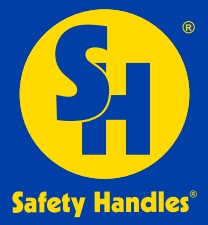
Why use manual handling aids? The cost to companies of MSK injuries.
Share
Musculoskeletal disorders (MSK) have emerged as a significant concern in the realm of workplace safety, not only impacting the health and well-being of employees but also imposing substantial financial burdens on companies and organisations. The Health and Safety Executive (HSE) presents two stark examples that shed light on the tangible costs incurred by businesses due to manual handling injuries:
Case Study: Reducing Days Lost and Costs through Intervention
In one instance, a company experienced a staggering loss of 373 working days within a year due to manual handling injuries. This resulted in a substantial cost of £24,000 in wages paid to absent workers, not to mention additional expenses incurred through overtime payments and other associated costs. The implementation of proactive measures, including handling aids, manual handling training, and a rehabilitation program, saw a significant reduction in days lost to 74, bringing down wage costs to approximately £5,000. This not only showcases the impact on productivity and financial resources but also underscores the effectiveness of preventive interventions.

Case Study: Financial Toll of Manual Handling Injury Claims
Another compelling example illustrates the financial toll on a company facing manual handling injury claims, amounting to a staggering £150,000 over a three-year period. This accounted for a significant 20% of their total employers' liability claims. Such figures underscore the pressing need for businesses to address the root causes of MSK issues, not only to protect their workforce but also to safeguard their financial stability.
Musculoskeletal disorders, particularly those affecting the back, are alarmingly prevalent, with an estimated incidence figure of 51,000 cases reported through the Labour Force Survey (LFS)*. The primary work activities identified as contributing to or exacerbating back disorders include manual handling (lifting/carrying/pushing/pulling), awkward or tiring positions, and workplace accidents. These findings emphasize the pervasive nature of MSK issues across industries, urging organisation's to proactively address these risk factors to curb the associated human and financial costs.

Investing in Prevention for a Healthier Workforce and Bottom Line
The examples provided by the HSE highlight the tangible and far-reaching consequences of musculoskeletal disorders in the workplace. Beyond the immediate impact on employees' health, the financial toll on businesses is substantial. Companies must recognize the imperative to invest in preventive measures, such as comprehensive training, ergonomic tipping aids, and rehabilitation programs, to mitigate the risks and costs associated with MSK. In doing so, businesses can foster a healthier workforce and protect their bottom line from the hidden burdens of manual handling injuries.
For more details contact Hello@SafetyHandles.co.uk or ring 0333 800 5000.
* for 2011/12
Examples taken from "Making the best use of lifting and handling aids" published by the HSE
